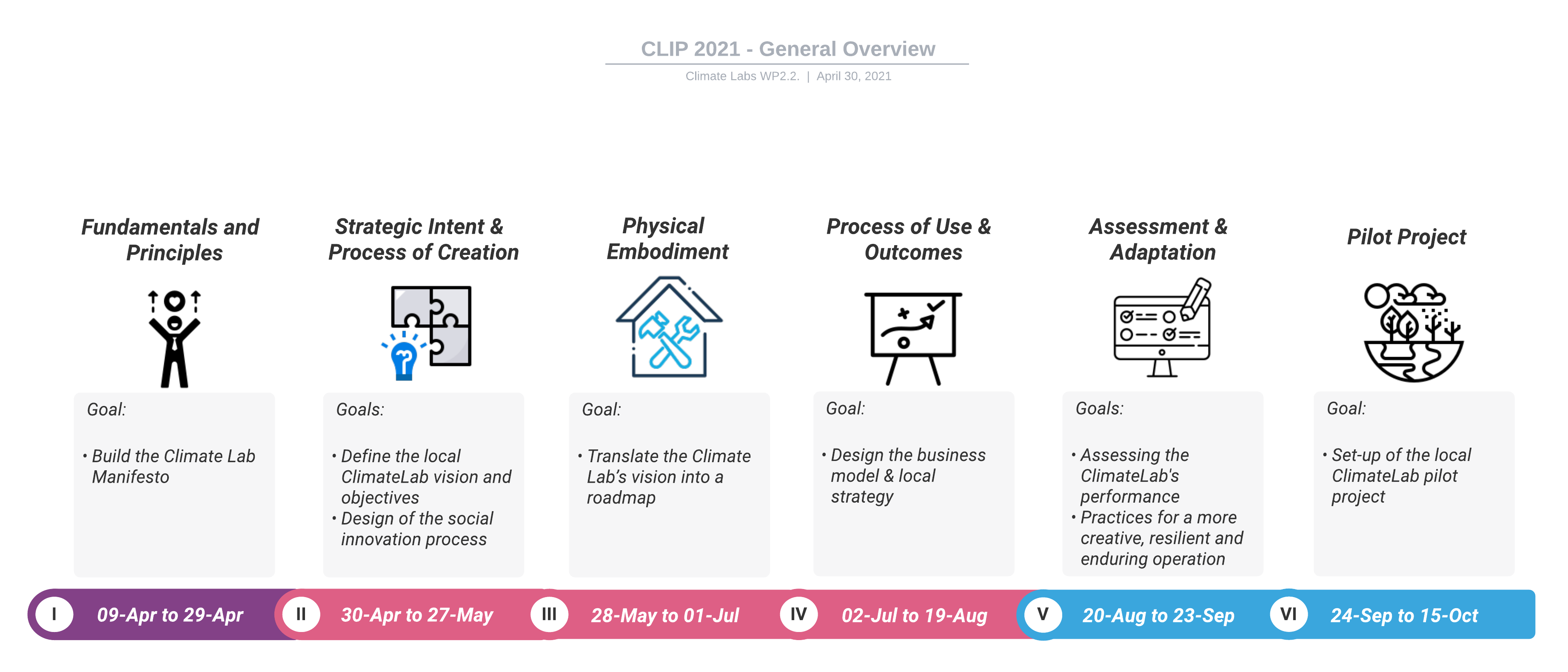Different stages defined this work time.
1. First, the alliance worked on the construction of a “manifesto” to inspire and establish a common goal in the work of building each of the laboratories.
2. Then we went on to identify what could be a local and regional vision of a Climate Lab. In this work, the foundations and challenges present in each of the contexts of the territories were recognized, as well as the capacities present in each of the higher education institutions.
3. Once these local visions were recognized, the most appropriate social innovation model to respond to the challenges identified in climate change and to the reality of the interests and capacities of each university began to be defined.
4. In the search for the innovation model, we worked on the construction of a local strategy and business model for each Climate Lab. At this point, specific objectives, services, and activities that the team of each laboratory could provide in their contexts were identified.
5. In this task, some sketches were made of what could be a governance model for each Climate Lab, taking into account the type of service, the academic space in which it is formed, and the group of professors, students, and administrative staff that is being developed. This was an introduction to work package 2.3, which deals directly with laboratory governance.
6. Evaluation mechanisms were established for the performance of the Climate Lab’s objectives, activities, and services. But at the same time, practices were proposed to achieve a more creative, resilient, and lasting operation.
Por:
15/06/2023 - 14h17
